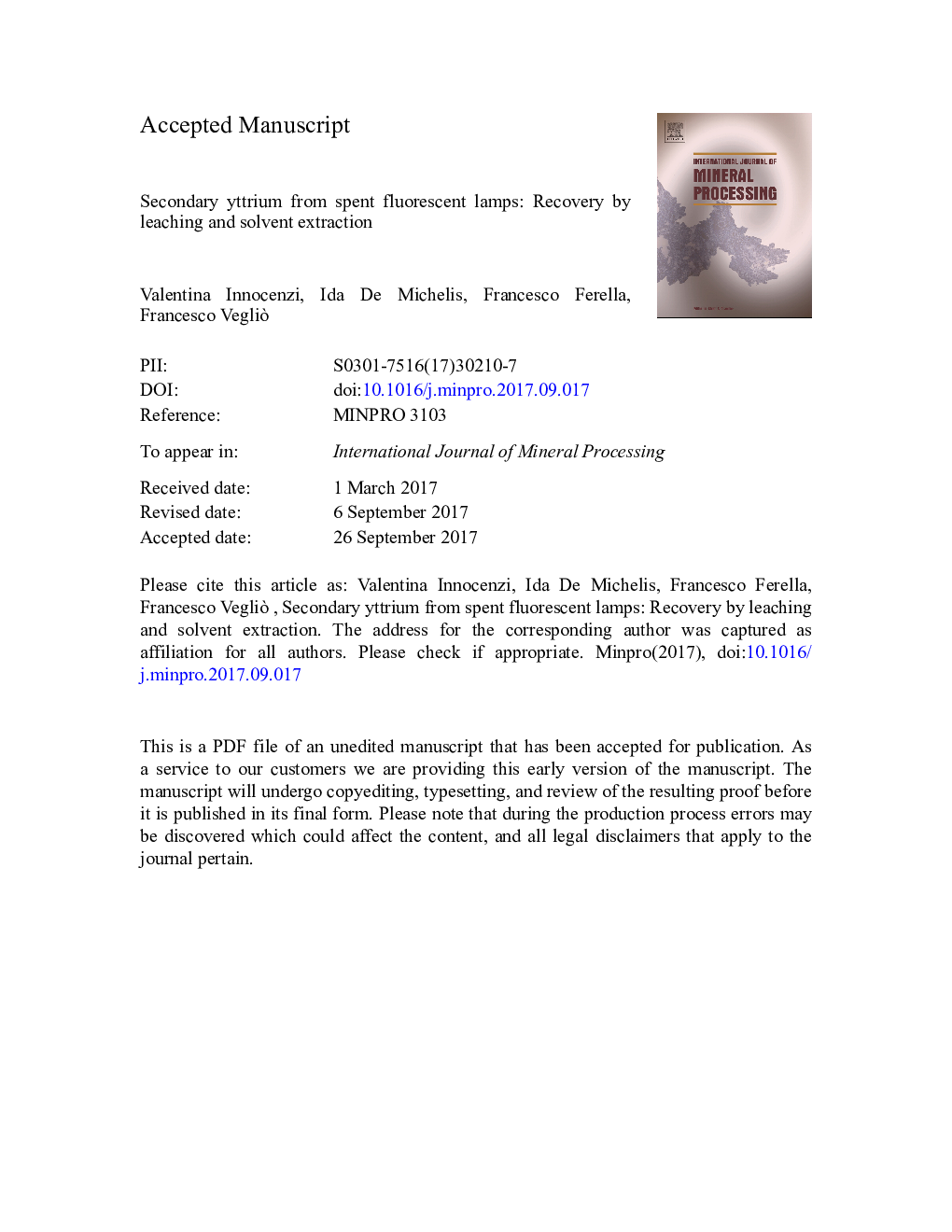| Article ID | Journal | Published Year | Pages | File Type |
|---|---|---|---|---|
| 4769133 | International Journal of Mineral Processing | 2017 | 39 Pages |
Abstract
The separation of yttrium and calcium from acid leach liquor obtained from leaching of fluorescent lamp phosphors has been investigated by solvent extraction with D2EHPA and Cyanex 272 in kerosene. The preliminary tests suggested that D2EHPA was more efficient than Cyanex 272 for separation of yttrium. The experimental tests allowed to define the best process conditions, among those investigated, to separate and recover yttrium selectively. The best separation circuit included three-stage cross current extraction with 20%v/v D2EHPA in kerosene (O/AÂ =Â 1/1, room temperature, 10 min of contact, pH 0.02) and stripping step in counter current with 1.5Â M sulfuric acid (O/AÂ =Â 1/1, room temperature, 30Â min of contact). After stripping, yttrium was recovered as oxalate by the addition of oxalic acid. According to the experimental results, a hydrometallurgical process was developed. The final recovery from leach liquor was around 90% and the grade of the final product was 97.5% as hydrated yttrium oxalate. The main impurity was sulfur, 1.28% wt, in addition to traces of other elements such as Si (0.057% wt), Zn (0.015% wt), Eu (0.14% wt) and Fe (0.02% wt).
Related Topics
Physical Sciences and Engineering
Chemical Engineering
Chemical Engineering (General)
Authors
Valentina Innocenzi, Ida De Michelis, Francesco Ferella, Francesco Vegliò,
